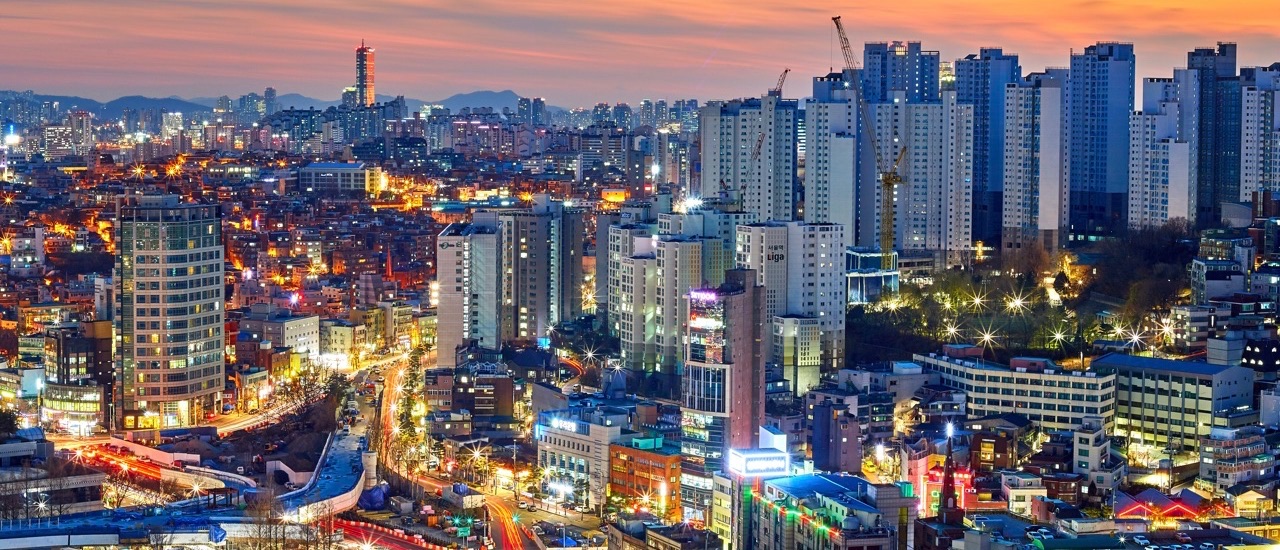As proponents of new interconnection rules in Europe champion a new settlement regime, based on a model of “sending party pays”, there is one important question looming over the debate: why are proponents not championing the case of South Korea, where similar rules were implemented?
The simple answer: it’s not a favorable example.
The story of South Korea’s settlement regime is unfortunately one in which bad policy is patched by even worse policy. In May of this year we released an Internet Impact Brief on the case of South Korea, where we looked at the implications of the existing rules, and the recently proposed amendments currently discussed in the national assembly.
Our assessment concluded that the rules not only harm users in South Korea, but also pose a direct threat to the networking model itself.
So how did South Korea, a country that is often seen as a leader in the digital space, end up with a set of policies that are opposed to the way the Internet works? And what are the lessons for European policy makers? In this blog post we look at the evolution of the South Korean rules, and how the altering of fundamental norms can cause critical harm to the Internet and its users.
The Beginning of Bad – Regulating Interconnections
The ability to distribute data storage and processing across the network is one of the Internet’s key benefits. When we as users interact with an online service we are rarely interacting with just one server, but rather a network of servers that all contribute to the service’s operations. This includes the use of Content Delivery Networks (CDNs) that store a copy of popular content on dedicated servers (caches) closer to the users. For end users the cache helps improve the quality of the service by reducing latency and increasing resilience, and for the ISP it means reduced costs and improved capacity since they can avoid expensive transit links.
The story of South Korea’s settlement regime starts with one such cache offered by Facebook. Through peering arrangements amongst the largest ISPs (KT, SK Broadband, and LG Uplus), it enabled content that had previously been accessed over expensive transit links to Facebook’s server in, for example, Hong Kong, to now be accessed from Facebook’s cache in KTs network.
If the story had ended here it would have resembled how the Internet has evolved in most other parts of the world: mutual benefits for the ISP and the content provider of improved service quality and reduced costs by driving a service’s data storage and processing closer to users at the edge of the network.
But in 2016 the Korean government implemented a set of amendments to its 2005 interconnection policy that fundamentally altered norms of voluntary negotiated interconnection by instead imposing a “sending party pays” regime. The critical piece of this change was to impose a “mutual settlement” requirement amongst same-tier operators, in which ISPs were required to compensate each other for traffic exchanged between them. Not long after, KT found themselves with large bills from the other two Tier-1 ISPs, asking for payment for the Facebook traffic that was sent from the cache in KTs network.
Faced with these claims for payment, now mandated under the new interconnection rules, KT sought to recoup these costs by instead charging Facebook for the traffic delivered from the cache. When negotiations between KT and Facebook failed, Facebook decided to disable its cache in KTs network, which meant that Korean users were instead routed to other caches overseas.
When Facebook decided to disable its cache in Korea the effects were noticeable. For example, for users in SK’s networks, which had previously retrieved the data from the cache in KTs network, the latency for connecting to Facebook more than quadrupled.
The Bad Gets Worse: Policy Patch #1 – Service Stability Requirements
Due to this deteriorated service quality for connections to Facebook, KT made a claim to the regulator KCC that issued a fine against Facebook of USD $328,000 for deliberately disrupting its services. The decision was later overturned in August of 2019 when Seoul’s Administrative Court sided with Facebook on the grounds that the content provider had the right to freely redirect network routes.
In parallel to the dispute between KT and Facebook, a new legal battle had begun between SK Broadband and Netflix over the dramatic increase in traffic that originated from the service. In November 2019 SK made a claim to the KCC to have Netflix pay a “network usage fee” as compensation for the increased bandwidth requirements. Specifically, SK requested that Netflix pay for the costs of network upgrades. The decision was put on hold after Netflix asked the Seoul Central Court to clarify that there were no such obligations under the South Korean law[1].
In what was seemingly a direct response to the legal challenges described above, Korea’s National Assembly approved the “Content Providers’ Traffic Stabilization Law” in May 2020 (informally known as the “Netflix Law”). This new law provided an amendment to the Telecommunications Business Act (TBA) that required content providers of a certain size (1% of total traffic and 1 million daily users) to take measures that ensure that their services remain stable to Korean users.
In relation to the 2016 rules, the new amendments can be seen as an attempt to patch the adverse effects of the “sending party pays” regime. By imposing the requirement of “service stabilization measures”, the law is effectively a means to force foreign content providers to negotiate network usage fees with the large ISPs as they would need to deploy infrastructure (e.g. caches) and make interconnection arrangements to meet the requirements.
The Worse Gets Worsened: Policy Patch #2 – Mandating Network Usage Fees
While the story of Korea’s settlement regime is tied to the presence of large international content providers, it has been the domestic content providers that have borne the brunt of the impact. The 2016 rules that imposed a sender pays regime meant that hosting content in any of Korea’s networks became excessively expensive as the ISP would pass on costs to the content provider. While Facebook could simply disable its cache and route the traffic abroad when KT requested “network usage fees”, local content providers could not.
This unequal impact on domestic and foreign content providers has been an underlying issue since 2016 and was seen as one of the key motivations for the 2020 amendments. To address this issue, and once again try and patch the adverse effects of the SPNP rules of 2016, the Korean National Assembly is currently discussing an additional amendment to the TBA. This amendment would now mandate the payment of network usage fees from both domestic and foreign content providers. In effect, it would expand the scope of South Korea’s current SPNP regime from interconnection amongst local ISPs to now include any end-point on the global Internet.
The Lessons From South Korea
The case of South Korea provides a valuable lesson to European policy makers. On the one hand it’s a story about how interference in the voluntary negotiation amongst networks can have adverse effects on both network economics and performance. We have seen services providers leaving the country to avoid being subject to the regulations, degraded Internet experience due to larger latencies, and increased costs for companies and consumers.
On the other hand, it is a call for attention that the few fundamental principles that underpin the Internet must remain untouched. What makes the Internet a global accessible infrastructure must be preserved and critical rules that protect its users, like the Open Internet Regulation, must not be watered down for the commercial interests of a few.
Yet, perhaps the most important lesson from South Korea is what enabled the regulatory free fall: if one starts from the factually wrong premise that content and data consumed by the end user is somehow “pushed” to the end user, then the logical trajectory will resemble what has happened in South Korea. A false premise will lead you to a false conclusion. European policy makers must not fall into this trap.
[1] Netflix lost the case in June of 2021, but have since appealed to the Seoul High Court in a process that is still ongoing at the time of writing.
Image credit: Mathew Schwartz


